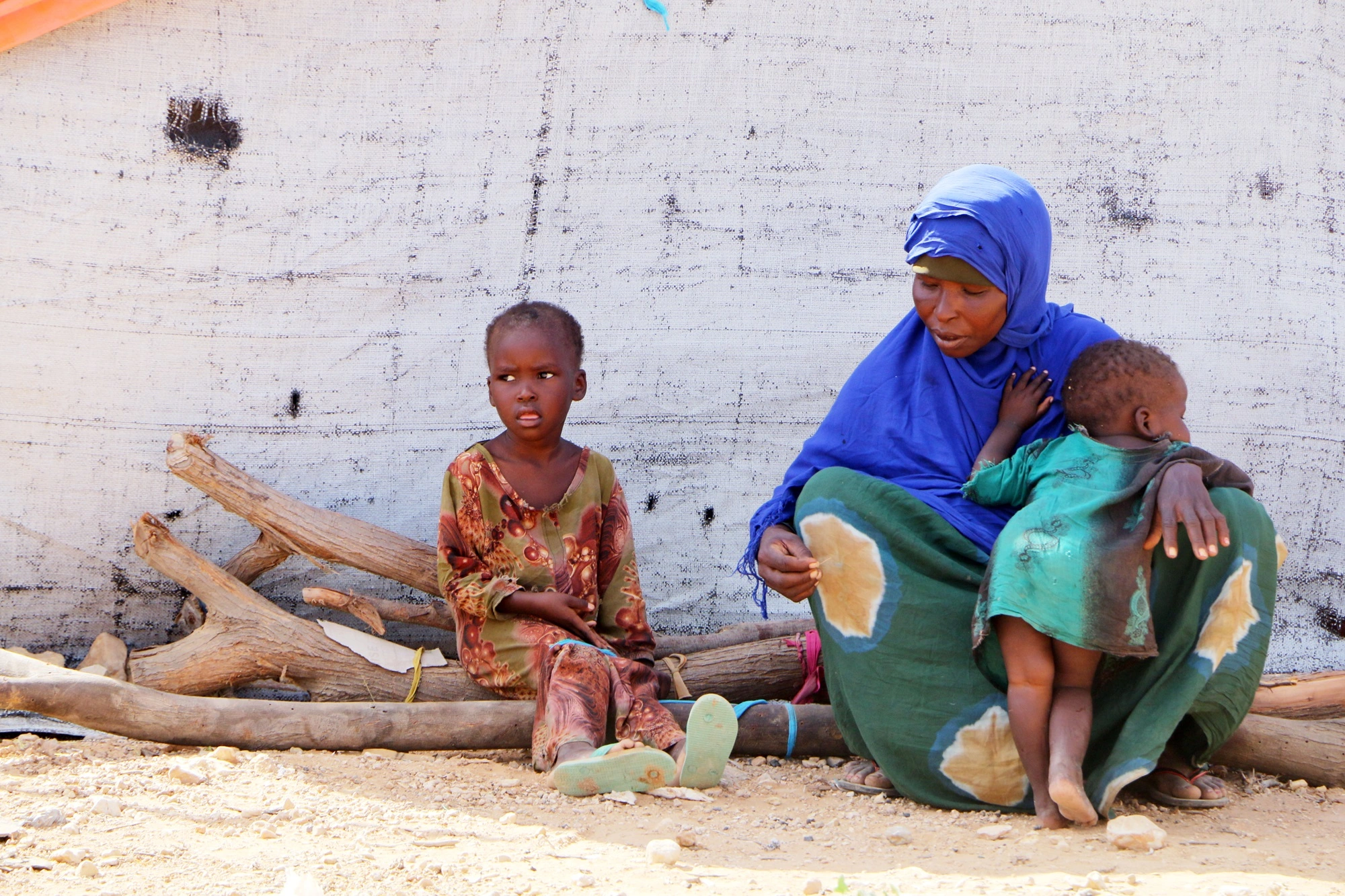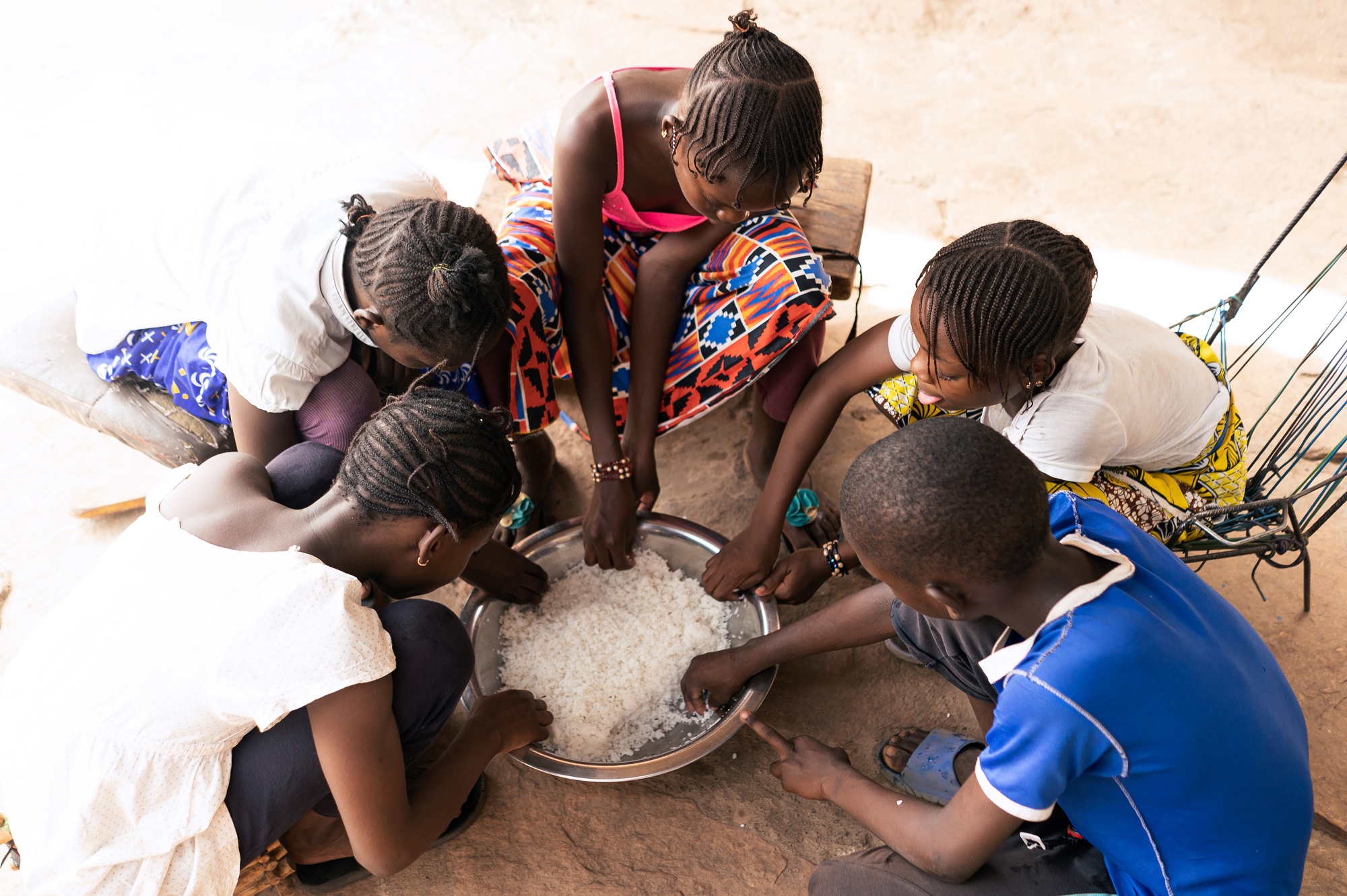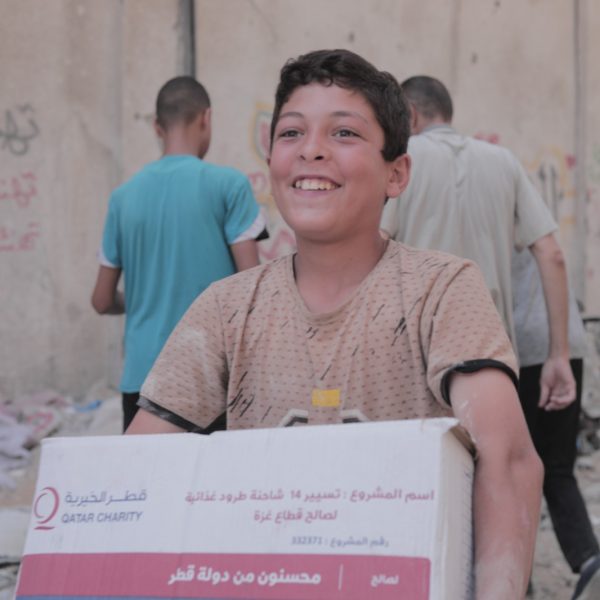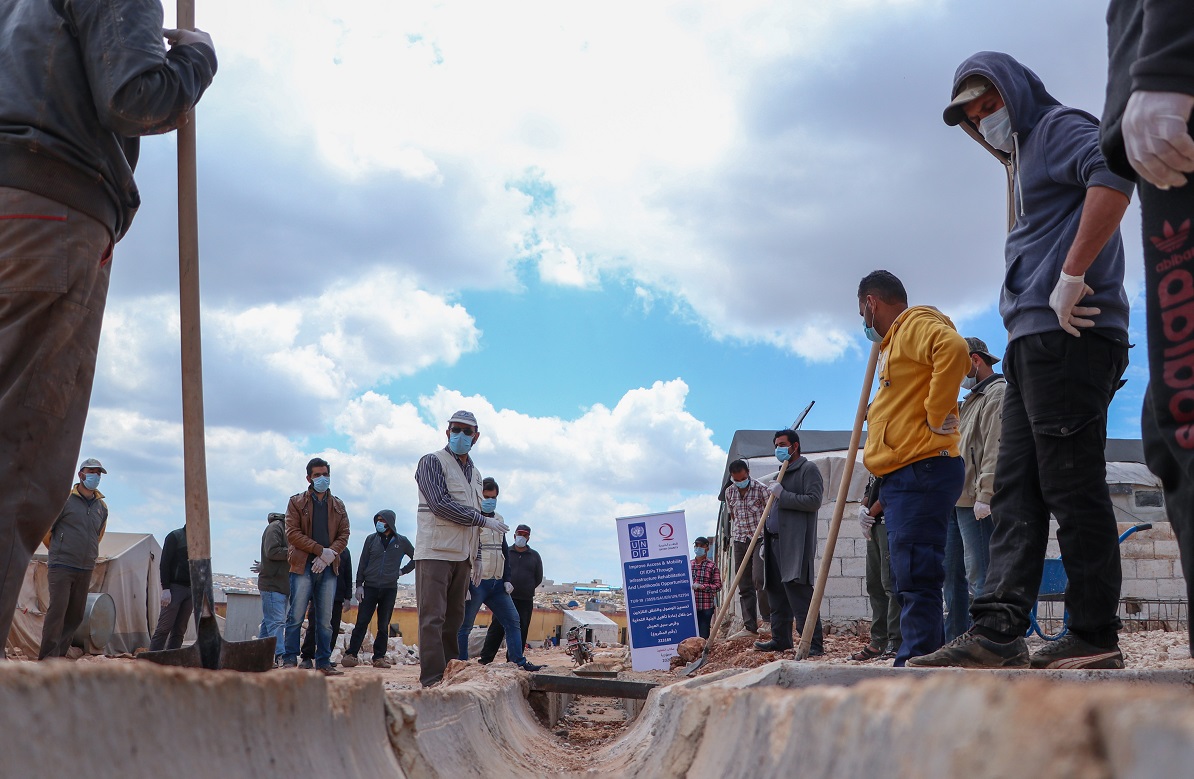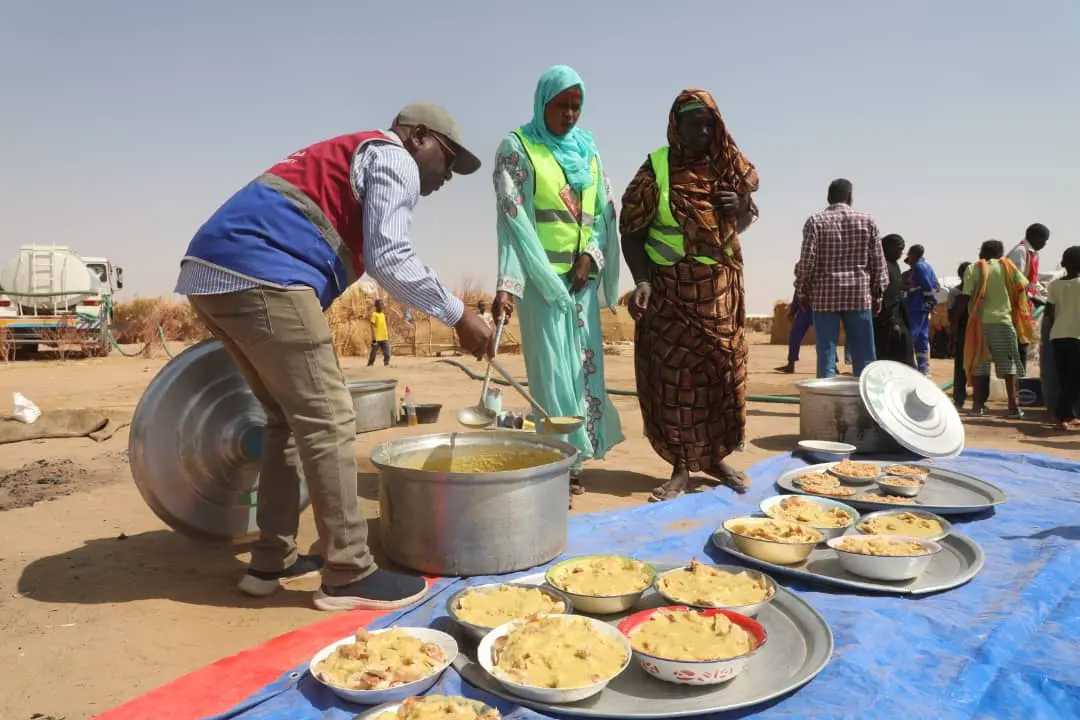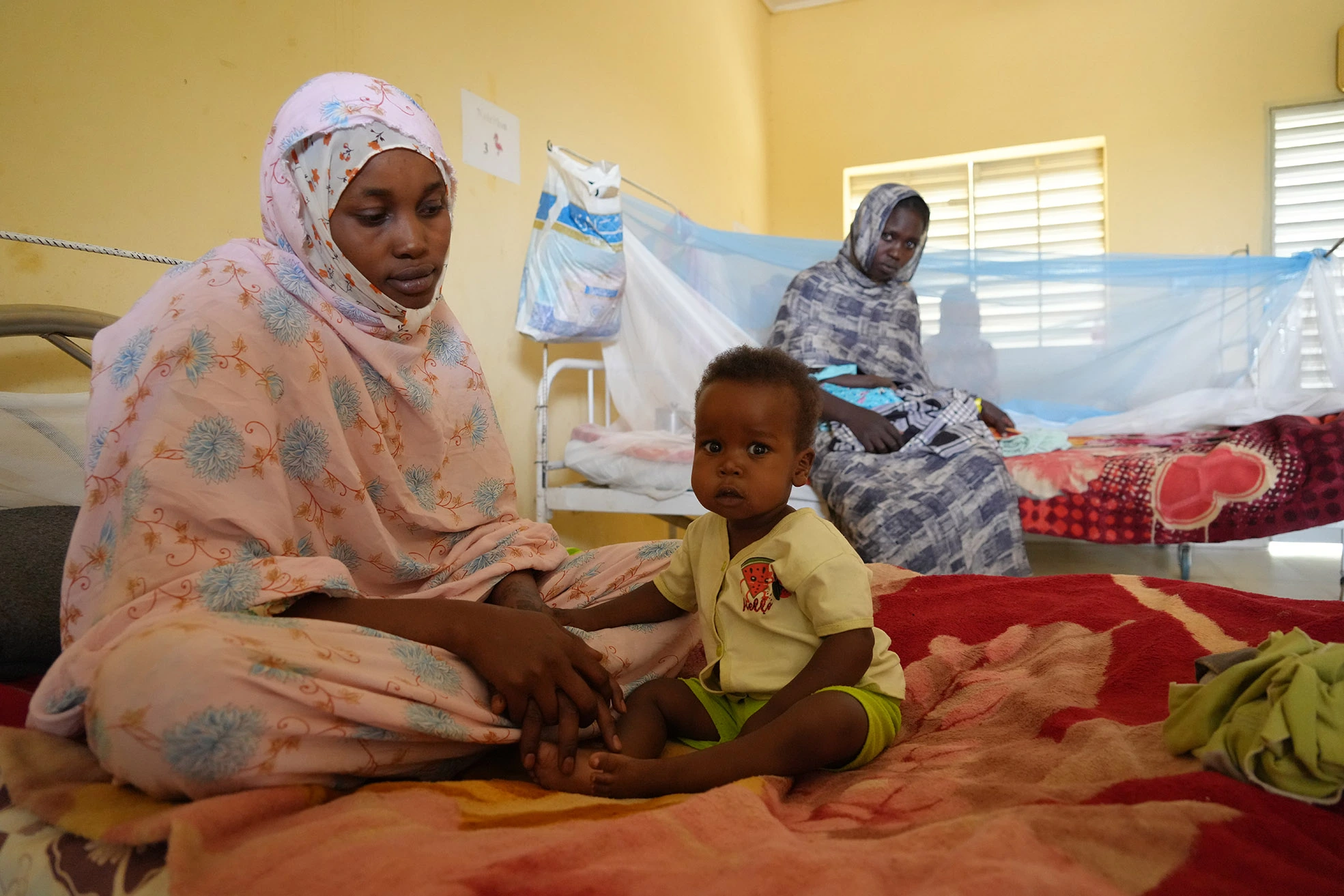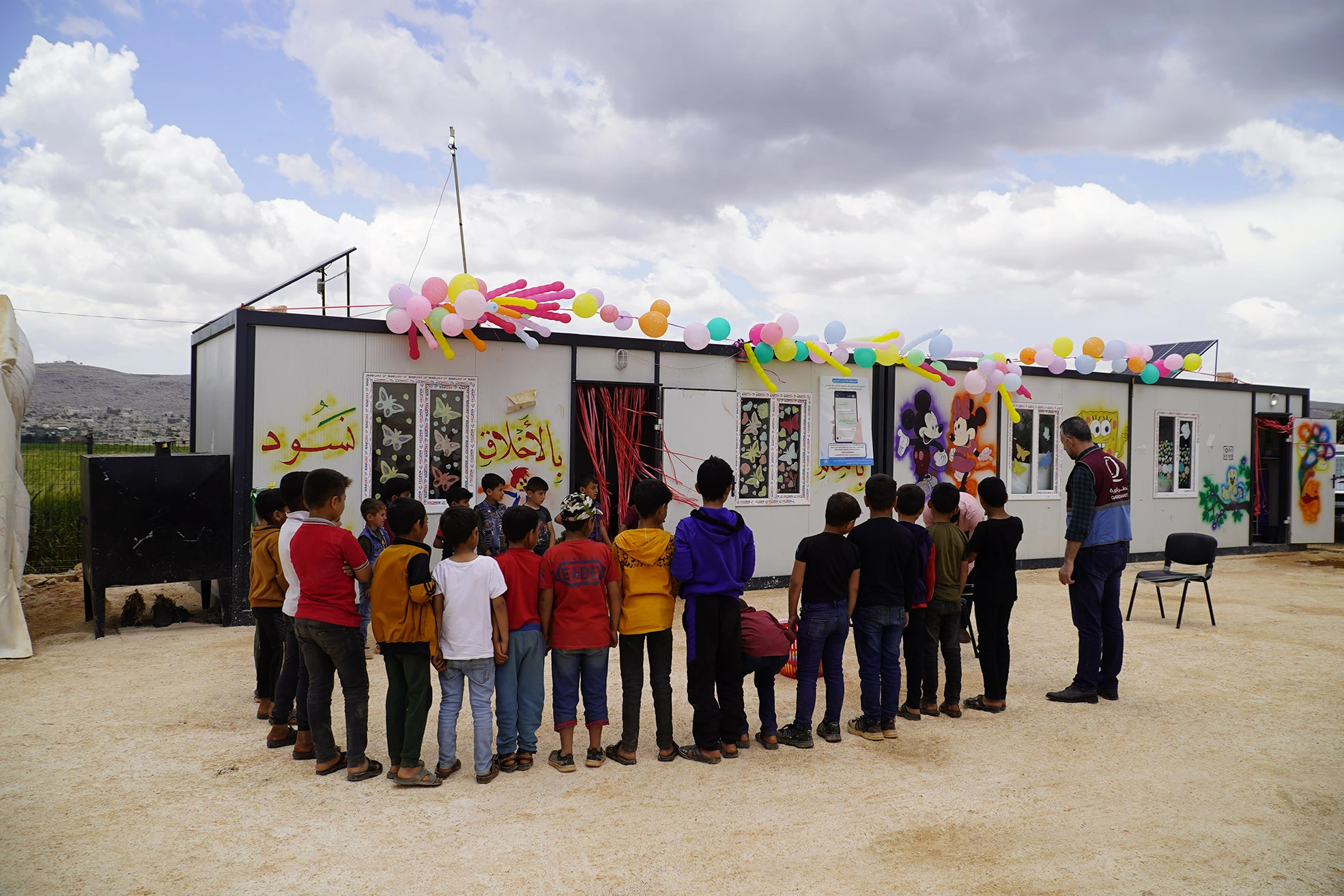Mr. Ahmed Marai, Head of the United Nations Office for the Coordination of Humanitarian Affairs (OCHA) in Doha, stated that coordination, cooperation, partnerships, and alliances between the United Nations, international humanitarian organizations, and local organizations are essential to achieve an effective and impactful humanitarian response, especially in the context of the ongoing crises and escalating disasters in the Middle East and North Africa.
In a special interview with Qatar Charity’s publication, Ghiras Magazine, he emphasized that donor agencies and international organizations must explore and implement flexible financing mechanisms to rapidly respond and adapt to emerging crises.
Mr. Marai explained that Qatar Charity’s commitment to sustainable development qualifies it to play a pivotal role in the recovery and reconstruction phases. This highlights the growing cooperation between Qatar Charity and OCHA, especially in light of an important memorandum of understanding expected to be signed soon.
The Middle East and North Africa region witnessed significant crises and disasters in 2023, including prolonged crises, earthquakes, floods, and conflicts.
What is the impact of these events and their repercussions on societies and their infrastructure?
In 2023, the Middle East and North Africa region faced a series of significant challenges, including prolonged crises, disasters, earthquakes, floods, and recently the humanitarian situation in Gaza due to war. These events had profound effects on societies.
Firstly, these crises weakened communities’ capacity, making them vulnerable to multiple humanitarian needs. Essential services such as health and education often break down, affecting people’s well-being and future prospects. People increasingly flee their homes or cross borders as refugees, imposing burdens on host communities and leading to increased competition for limited resources. Natural disasters exacerbated existing vulnerabilities, and already weakened infrastructure, such as roads and schools, suffered further damage, hindering access to essential services.
Conflicts in the region have profound and lasting effects on communities and their infrastructure. Displacement, home destruction, vital infrastructure destruction, and primary service disruption have become prominent features of conflict-affected areas, and the protracted nature of these conflicts hampers recovery efforts and rebuilding of these communities.
In response to these challenges, the United Nations Office for the Coordination of Humanitarian Affairs (OCHA) continues working closely with partners to coordinate and deliver practical humanitarian assistance. Addressing the diverse impacts of crises and disasters requires a comprehensive approach that considers the specific needs of the affected communities, focusing on building resilience, restoring essential services, and supporting recovery efforts.
Our goal is to ensure that humanitarian aid reaches those in need. We call on the international community to increase support to alleviate the direct and long-term effects on communities and their infrastructure in the Middle East and North Africa region.
With all its ramifications, will this reality impose additional responsibilities on international organizations, especially OCHA?
The role of the United Nations, especially the Office for the Coordination of Humanitarian Affairs, is increasingly crucial in addressing evolving and complex humanitarian challenges in the Middle East and North Africa. These multiple challenges have placed additional responsibilities on OCHA and United Nations agencies, requiring several steps:
Firstly, coordination and response planning: Given the complexity of crises requiring well-organized responses from various humanitarian actors, OCHA ensures coordination among United Nations agencies, non-governmental organizations, and others to avoid duplication, identify gaps, and provide adequate and timely assistance.
Resource mobilization
Escalating crises often lead to increased humanitarian needs, necessitating additional resources. OCHA engages in resource mobilization and calls for support from donor agencies to ensure adequate funding for humanitarian response. This includes dealing with international partners, governments, and donors to secure financial support for humanitarian programs.
Humanitarian advocacy and diplomacy
OCHA works to raise awareness of the humanitarian context, support humanitarian principles, enhance humanitarian diplomacy, and support the protection of vulnerable populations.
Capacity building and preparedness
Crises are dynamic and require continuous capacity-building and preparedness measures. OCHA works on enhancing its ability to respond to emergencies effectively through training, knowledge exchange, and developing robust preparedness plans to mitigate the impact of future crises.
Data and analysis
OCHA provides essential data and analysis to guide decision-making processes and response strategies. By monitoring and analyzing the humanitarian situation, OCHA helps identify trends, assess needs, and adjust response efforts accordingly, ensuring a more targeted and evidence-based approach to humanitarian assistance.
How can international and local organizations make their roles more impactful in addressing the damages and risks of these disasters and crises that have ravaged the region, especially this year?
Addressing the damages and risks resulting from escalating crises and disasters in the Middle East and North Africa requires concerted efforts from international and local organizations. This year, we have experienced significant earthquakes, floods, and conflicts. These events have placed additional responsibilities on the United Nations, particularly OCHA. As the Head of OCHA in Qatar, I believe a cooperative and comprehensive approach is critically important for an effective response to mitigate the impacts on communities and their infrastructure. Enhancing coordination and cooperation among international and local organizations is crucial through improving communication, sharing information, and coordinating efforts to avoid duplication and ensure a more cohesive response.


